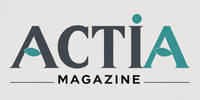Starting September 1, 2025, the Government of Canada is rolling out a significant update to its study permit requirements. The minimum cost-of-living financial requirement for international students will increase by nearly 11%, reflecting rising inflation and the true cost of living in Canada.
This new policy, implemented by Immigration, Refugees and Citizenship Canada (IRCC), aims to ensure international students are financially equipped to support themselves during their stay. If you’re planning to study in Canada this fall or beyond, here’s what you need to know.
Table of Contents
New Financial Requirements for Canada Study Permits in 2025
IRCC Raises Cost-of-Living Threshold by 10.95%
Previously set at $20,635 for a single applicant, the updated requirement for 2025 now stands at $22,895. This change, effective from September 1, 2025, aligns the study permit’s financial standard with Statistics Canada’s Low-Income Cut-Off (LICO), offering a more realistic measure of what it costs to live in the country.
The adjustment applies in addition to tuition and travel costs and reflects IRCC’s goal of preventing financial hardship for students during their studies.
New Canadian Citizenship Rules 2025: How Bill C-3 Impacts Families with Children Born Overseas
Breakdown of New Minimum Funds by Family Size
| Number of Family Members | Required Funds (CAD) – Effective Sept 2025 | Previous Amount (2024) | Increase (%) |
|---|---|---|---|
| 1 (applicant only) | $22,895 | $20,635 | 10.95% |
| 2 people | $28,502 | $25,690 | 10.95% |
| 3 people | $35,040 | $31,583 | 10.95% |
| 4 people | $42,543 | $38,346 | 10.95% |
| 5 people | $48,252 | $43,492 | 10.94% |
| 6 people | $54,420 | $49,051 | 10.95% |
| 7 people | $60,589 | $54,611 | 10.95% |
| Each additional person | $6,170 | $5,559 | 10.99% |
Note: These figures apply to all provinces and territories except Quebec, which maintains its own financial criteria for international students.
Acceptable Proofs to Meet Cost-of-Living Requirement
To qualify for a study permit under the new guidelines, applicants must show credible financial support. Accepted documents include:
Forms of Proof:
- Guaranteed Investment Certificate (GIC) from a Canadian financial institution
- Proof of Canadian bank account with transferred funds
- Bank statements from the last four months
- Bank draft convertible to Canadian dollars
- Student loan documents from recognized financial institutions
- Letter of financial support from a sponsor, with supporting bank or income statements
- Scholarship confirmation or enrollment in a fully funded academic program
All documentation must be in English or French, or accompanied by a certified translation.
Canada’s Average Salary Hits $67,466 in 2025: Which Provinces Are Earning the Most?
Why This Change Matters for Students
Realistic Budgeting and Financial Security
Until recently, Canada’s financial threshold for international students hadn’t been updated in over two decades. The outdated $10,000 benchmark left many students financially vulnerable. The new amount provides a more accurate reflection of real-life expenses such as rent, transportation, and food.
For example, a student living in Toronto or Vancouver might face:
- Rent: $1,200 to $1,800 per month
- Groceries: $300 to $500 per month
- Transit: $100 to $150 per month
With the new financial standard, students are more likely to thrive instead of struggling.
Protecting Students From Exploitation
One of the major concerns in recent years has been international students taking on long hours of low-wage jobs to stay afloat. The increased financial requirement is expected to:
- Reduce exploitation by ensuring students can rely on personal or sponsor funds
- Allow students to focus more on academics
- Minimize mental stress and promote well-being
Canada’s Financial Requirements Compared to Other Countries
How does Canada stack up against other popular study destinations?
| Country | Annual Living Funds Required (CAD Equivalent) |
|---|---|
| Canada (2025) | $22,895 |
| Australia | $21,826 |
| New Zealand | $20,340 |
| United Kingdom | $15,680–$20,447 (varies by region) |
| United States | Approx. $13,500 |
| Denmark | Around $1,175 |
While Canada’s requirement is higher than most, it reflects its high living standards and infrastructure for supporting students—especially in major cities.
What About Quebec?
Quebec sets its own financial rules for international students. These requirements remain separate from IRCC’s national policy.
As of the most recent update, Quebec’s financial requirements are:
- One person (18+): $14,349
- One person (under 18): $7,176
- Two adults: $21,046
- Two adults and one child: $23,575
- Two adults and two children: $25,444
New figures are expected soon for 2025, and applicants should check official Quebec immigration sources for current information.
It’s Official: Canada’s New Middle-Class Tax Relief Takes Effect July 1 – Are You Eligible?
What This Means for Future Students
If you’re submitting a Canada study permit application on or after September 1, 2025, you must be prepared to show:
- Tuition for the first year
- At least $22,895 for living expenses
- Valid documentation as proof
Planning ahead and understanding the financial requirements will not only help your visa get approved—it’ll set you up for a smoother, more fulfilling experience as an international student in Canada.
A Smarter Approach to Study Permit Funding
The updated 2025 cost-of-living requirement is more than just a policy shift—it’s a safety net for international students. While the higher amount may seem daunting at first, it ensures students are better positioned to succeed, focus on their studies, and enjoy life in Canada.
By preparing well, securing your documents, and budgeting realistically, you can turn this new regulation into a strategic advantage on your path to academic and personal growth in Canada.

